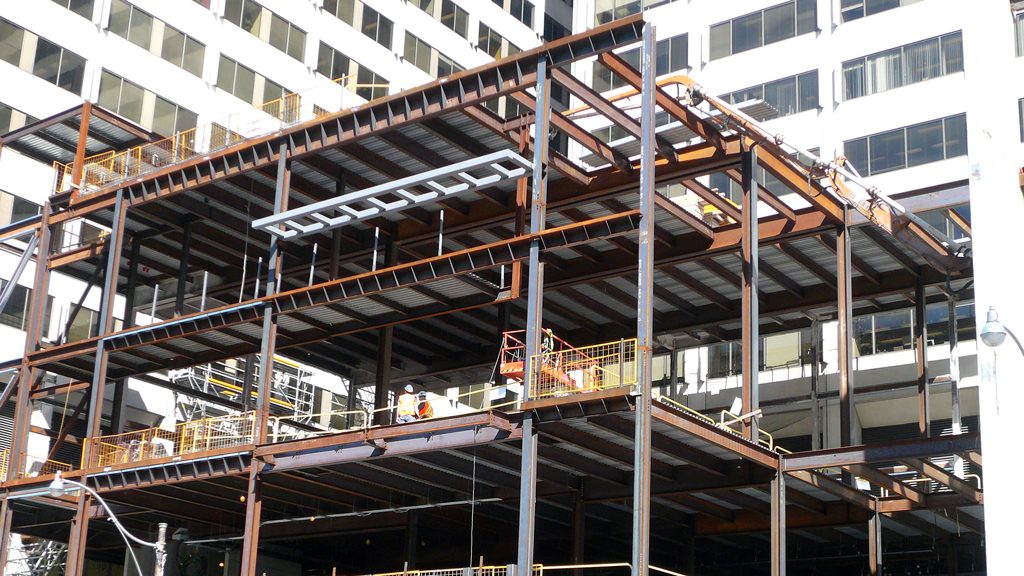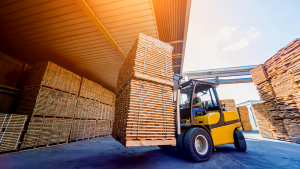OTTAWA — The federal government extended an olive branch of sorts to Donald Trump’s tough-on-trade White House recently as it began exploring how best to address industry concerns that U.S. tariffs are turning a trickle of foreign steel imports into a torrent.
Ottawa has launched a 15-day consultation period and will seek input from producers, users and the public as it considers imposing “safeguards” on the import of several steel products, said Finance Minister Bill Morneau. The measures, if applied, could include quotas, surtaxes or a combination of both.
If the consultation period identifies a risk of potential damage to the Canadian industry, then Ottawa will impose safeguards in an “expeditious manner,” Morneau told a news conference in Hamilton, Ont.
The main goal is to protect Canada’s steel industry, the government insists — but taking a stand against cheap steel imports will have a vital side effect: appeasing the Trump administration.
The White House has complained Canada has opened a back door to the American market, allowing for an invasion of bargain-basement steel into the U.S. from places like China.
U.S. Commerce Secretary Wilbur Ross said in June that the steel and aluminum tariffs Washington imposed on Canada and other allies were designed to force them to address the overproduction and overcapacity of steel around the world.
The Trump administration has also drawn direct links between steel imports, tariffs and the ongoing efforts to renegotiate the North American Free Trade Agreement (NAFTA).
With the crucial U.S.-Canada trading relationship at a low point, it’s in Ottawa’s interest to show Trump that Canada is taking action on the diversion and dumping of steel.
Foreign Affairs Minister Chrystia Freeland has insisted that Canada introduced stronger safeguards on steel well before the U.S. imposed the tariffs in June. At the same time, however, Ottawa acknowledged more work was necessary and promised to consult with industry on safeguards.
The government needs to be really cautious about this
— Jesse Goldman
Canadian Coalition for Construction Steel Lawyer
In unveiling his plan, Morneau said worries about cheap, foreign steel finding its way into Canada have grown since the application of the U.S. duties on steel imports against numerous countries.
The levies have put producers in other parts of the world on a quest to find new markets, such as Canada, he said.
“We’ve seen increases in imports,” Morneau said, although he did not offer specifics. “That surge in imports leads us to be concerned that we need to consider what measures to take.”
International trade rules enable a country to introduce safeguards to protect its domestic market when it finds itself in an unusual situation, said Morneau, arguing that the expected fallout from the U.S. tariffs qualifies as an “exceptional circumstance.”
The consultations will focus on products that could see safeguard action: steel plates, concrete reinforcing bars, energy tubular products, hot-rolled sheets, pre-painted steels, stainless steel wire and wire rods.
Joe Galimberti, the president of the Canadian Steel Producers Association, welcomed the consultations, noting that industry has been seeing increased import activity from offshore sources.
“This is a serious, serious challenge for the industry and a flood would truly be devastating to a lot of our producers,” he said.
Some industries in Canada that use steel have already started urging Ottawa not to proceed with safeguards.
The Canadian Coalition for Construction Steel, which represents construction steel suppliers, fabricators, service centres and importers, warns that safeguards would put more than 60,000 construction jobs in the country at risk.
“The government needs to be really cautious about this,” said Jesse Goldman, a lawyer representing the coalition, which also has support from labour unions.
The retaliatory steel tariffs introduced by Canada against the U.S. in response to the American levies are already providing a lot of protection for the steel industry, Goldman said. Imposing safeguards on the rest of the world would likely cause a supply shortage of steel in Canada, he added.
Lawrence Herman, a Toronto-based trade lawyer with Herman and Associates, said the overcapacity of steel has been a chronic issue for years on the international stage. He called the safeguards “absolutely necessary.”
“The world is awash in excess steel,” Herman said.
“Hopefully, it will show the U.S. administration — the Trump White House — that on steel matters, Canada and the U.S. have common interests.”
Morneau insisted there’s no connection between NAFTA talks and the steel issue.
The federal government has been in a holding pattern on NAFTA as it awaits the conclusion of high-level, one-on-one talks between the deal’s two other partners, the U.S. and Mexico. Those bilateral talks are now in their fourth straight week.
Some observers fear Canada’s absence could force Ottawa’s hand if a deal is reached between the U.S. and Mexico.
In an interview Aug. 13, Trump trade adviser Kevin Hassett told the FOX Business Network that the U.S. and Mexico were very close to a deal on NAFTA. A bilateral agreement between the U.S. and Mexico would be “good news for a deal with Canada,” he added.
“I think the hope is the Mexican deal becomes a model for what Canada accepts with us as well,” said Hassett, the chairman of the White House Council of Economic Advisers.











Recent Comments
comments for this post are closed